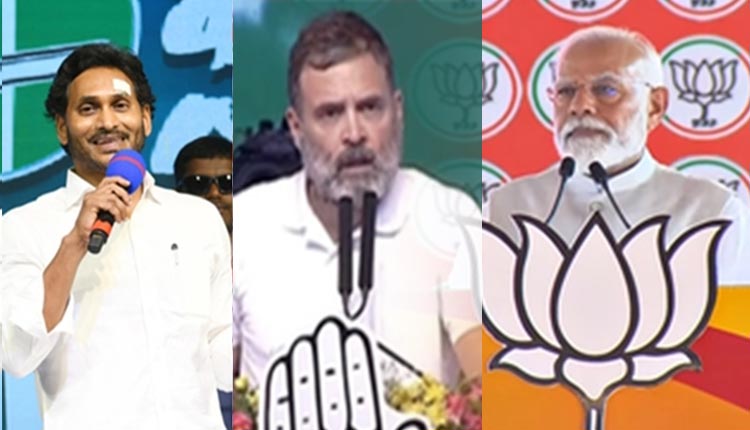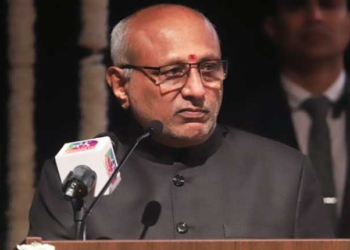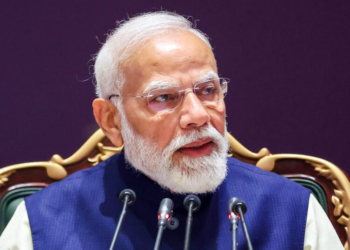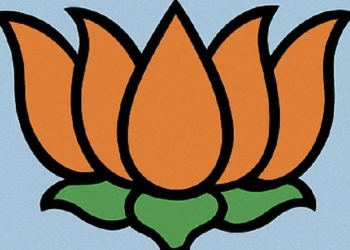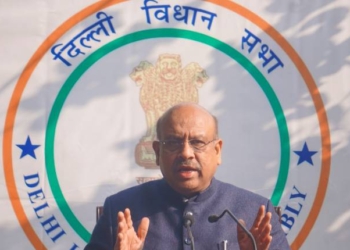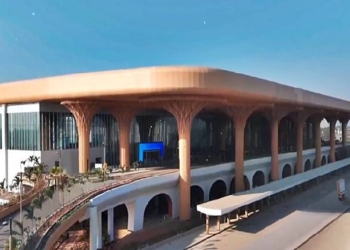Hyderabad/Amaravati: The high-octane poll campaign in Telangana and Andhra Pradesh came to an end on Saturday. Polling for all 17 Lok Sabha seats in Telangana, and for all 25 Lok Sabha seats and 175-member Andhra Pradesh Assembly is scheduled on Monday (May 13).
Mikes fell silent at 6 p.m., after more than three weeks of hectic campaigning which saw top leaders of national and regional parties criss-crossing the two Telugu states. Election authorities in both the states heightened their vigilance to ensure that there are no violations of rules in the 48-hour ‘silence period’.
Chief electoral officers have asked district election officers and superintendents of police to deal firmly with any violation of the rules.
On the last day of the campaign in Telangana, Union Home Minister Amit Shah and Congress leader Priyanka Gandhi Vadra addressed a couple of public meetings each, making a last appeal to voters for support their respective party candidates.
Telangana Chief Minister A. Revanth Reddy also held a couple of roadshows besides accompanying Priyanka Gandhi for the meetings in Chevella and Zaheerabad constituencies.
Bharat Rashtra Samithi (BRS) president and former chief minister K. Chandrasekhar Rao, who completed his bus yatra on Friday, addressed a press conference on the last day of the campaign, stressing the need for having voice of BRS in the Parliament to protect the interests of Telangana.
BRS working president K.T. Rama Rao and another key leader T. Harish Rao also held a few roadshows. Telangana is witnessing a three-cornered contest in majority of Lok Sabha seats.
BRS, which lost power to Congress in Assembly elections held in November 2023, is trying hard to make a comeback.
The ruling Congress is looking to continue the good show while BJP is confident of improving on its performance in the recent polls.
The high-voltage campaign saw Prime Minister Narendra Modi, Union Home Minister Amit Shah, BJP president J.P. Nadda, Central ministers, chief ministers of BJP-ruled states and other leaders campaigning for the party with public meetings and roadshows.
For the Congress, party leader Rahul Gandhi and AICC chief Mallikarjun Kharge addressed a few public meetings.
However, the campaign was mainly led by Chief Minister Revanth Reddy, who addressed 57 public meetings and corner meetings in 27 days.
He also campaigned for the party in Karnataka, Kerala and Andhra Pradesh.
The BRS campaign was led by party chief KCR with his bus yatra, covering 13 constituencies in 17 days.
His son KTR and nephew Harish Rao were the other star campaigners for the party.
The campaign saw no-holds-barred attack by leaders with some even making personal and derogatory comments against the rivals.
Interestingly, every party accused the two others of having a secret understanding.
The Congress attacked BJP over alleged plans to change the Constitution and end reservations for SCs, STs and Backward Classes.
The BJP hit back at Congress and also targeted BRS over corruption, appeasement politics and Muslim reservation.
Both BJP and BRS tried to corner the Congress over its failure to implement the guarantees given by it in Assembly elections.
Leaders of both the parties reminded Congress leaders of their commitment to implement all six guarantees in 100 days.
They questioned Congress over failure to implement promises like farm loan waiver, annual financial assistance of Rs 15,000 per acre to farmers, Rs 12,000 each for agriculture labourers and monthly Rs 2,500 for every woman.
The Congress leaders highlighted the schemes launched to implement promises like free bus travel, enhancing coverage under Rajiv Arogyasri to Rs 10 lakh, cooking gas cylinders for Rs 500 and 200 units of free electricity. The Chief Minister promised farm loan waiver by August 15 and reiterated commitment to implement other promises.
In Andhra Pradesh, ruling YSR Congress Party (YSRCP) and the NDA alliance are locked in a direct fight in both Assembly and Lok Sabha polls.
Telugu Desam Party (TDP), Jana Sena Party (JSP) and BJP have come together to take on YSRCP, which is contesting all the seats on its own.
Congress party, led by Chief Minister Y.S. Jagan Mohan Reddy’s sister Y.S. Sharmila Reddy, has also fielded its candidates but it is not likely to give a fight to rivals, except in a few constituencies.
For the NDA alliance, PM Modi, Amit Shah, JP Nadda and some other central leaders of BJP addressed a few meetings.
TDP president and former chief minister N. Chandrababu Naidu and Jana Sena leader and actor Pawan Kalyan addressed dais with PM Modi at a couple of public meetings.
YSR Congress’ campaign was single-handedly led by Jagan Mohan Reddy, who conducted a bus yatra and later undertook whirl-wind tour, covering all three regions — north coastal Andhra, south coastal Andhra and Rayalaseema.
While Jagan Mohan Reddy sought a fresh mandate to continue welfare schemes implemented during the last five years, the NDA partners accused him of derailing the development and encouraging liquor and land mafia.
YSR Congress’ failure to develop a state capital despite promising three capitals, failure to complete Polavaram project, alleged lawlessness and ‘destructive’ policies were the key issues raised by the opposition.
TDP-JSP, in their manifesto, promised several freebies including free bus travel for women, three free gas cylinders every year to each household, monthly financial assistance of Rs 1,500 to women aged 18-59 years, creation of 20 lakh jobs in five years and monthly unemployment allowance of Rs 3,000.
It also promised that Rs 15,000 will be given annually to every school-going student through ‘Thalliki Vandhanam’ scheme.
The amount will be credited to the bank account of the student’s mother.
Farmers will get financial assistance of Rs 20,000 each in a year.
Protected drinking water and sewerage connection to every house is another promise made by the alliance.
If voted to power, the alliance will provide uninterrupted nine-hour power supply for farmers.
Solar pump-sets will also be provided free-of-cost.
The BJP did not associate itself with the manifesto line with its national policy.
(IANS)




